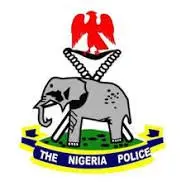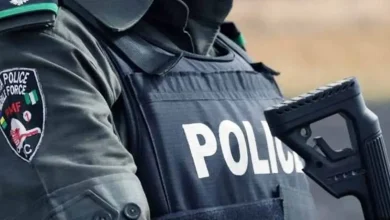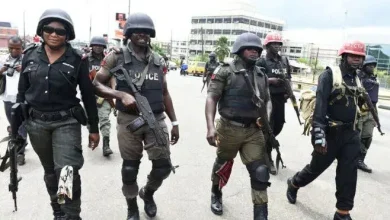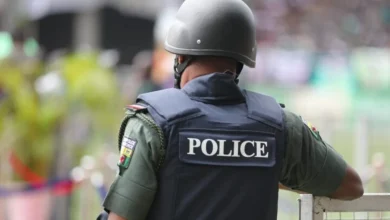Police ban protests near presidency, NASS ahead of nnamdi kanu rally

The Nigeria Police Force has issued a warning to all protest groups and individuals planning demonstrations in the Federal Capital Territory, Abuja, urging strict compliance with a recent court order restricting gatherings near critical national landmarks, including the Presidential Villa and the National Assembly complex.
The directive comes as the country braces for a fresh wave of agitation demanding the release of Nnamdi Kanu, the detained leader of the Indigenous People of Biafra (IPOB), who remains in custody on terrorism charges following his controversial extradition from Kenya in 2021.
According to a police statement released by Force Public Relations Officer, CSP Benjamin Hundeyin, the order is based on a Federal High Court ruling delivered on October 17, 2025, by Justice M.G. Umar in Federal Republic of Nigeria v. Omoyele Sowore & 4 Others (Suit No: FHC/ABJ/CS/2202/2025).
The ruling restrains all forms of protests or public gatherings in and around key high-security areas.
The restricted zones included Aso Rock Presidential Villa, National Assembly Complex, Nigeria Police Force Headquarters, Court of Appeal, Eagle Square and Shehu Shagari Way.
Hundeyin stated that the police were committed to enforcing the order “in deference to the authority of the court and in line with the constitutional mandate of the police to maintain law and order.”
He emphasised that although citizens have the constitutional right to peaceful protest, such actions must respect lawful restrictions.
“The court’s intervention is a safeguard, not a suppression, of constitutional freedoms,” he noted.
The planned protest, expected to hold on Monday, October 20, is backed by pro-Kanu groups and activists under the #FreeNnamdiKanuNow banner.
The police warned that any individuals or groups who defy the court order would be arrested and prosecuted.
They also revealed that digital forensics teams were monitoring online activity to track incitement and identify those using social media platforms to encourage unrest.
“Anyone found inciting violence, carrying weapons, or damaging public property will face immediate legal action,” the statement read.
Inspector-General of Police, Kayode Egbetokun, has directed the Commissioner of Police for the FCT and other security commands to enforce the order strictly.
Heightened police presence is expected at all sensitive locations in the city.
In response, activist and Sahara Reporters publisher, Omoyele Sowore, has openly rejected the police warning and denied the existence of any binding legal restriction on the protest.
Writing on X (formerly Twitter), Sowore argued that the alleged court order has no legal weight. “There is no valid court order restricting the planned #FreeNnamdiKanuNow protest from Aso Rock Villa,” he stated.
He contended that the order was never properly served on the protest organisers and has therefore lapsed under Nigerian law.
“An ex parte order that is not served within the required timeframe expires automatically. There is nothing to defy, no valid injunction, ” he said.
Sowore also accused the police of hypocrisy, pointing to the fact that pro-government groups had recently staged similar protests without police interference.
“The double standards are undeniable,” he said.
According to him, a team of 115 lawyers has been assembled and will challenge any legal barriers presented by the authorities on Monday.
He also warned against any use of excessive force or unlawful arrests by police, urging them to respect the constitution.
“Any officer who violates citizens’ rights will be held accountable. Nigerians have endured too much silence.
This is the time to act,” Sowore said.
With security agencies preparing for possible unrest and protest leaders vowing to press forward, Monday’s events could become a litmus test for civil liberties in Nigeria’s capital.
The continued detention of Nnamdi Kanu has become a flashpoint for political and ethnic divisions in the country.
While the federal government argued that IPOB poses a serious national security threat, supporters of the group claim Kanu was being politically persecuted for demanding a Biafran referendum.
The situation remained tense as the date of the planned protest approaches, with both sides holding firm and the eyes of the nation and international observers fixed firmly on Abuja.



